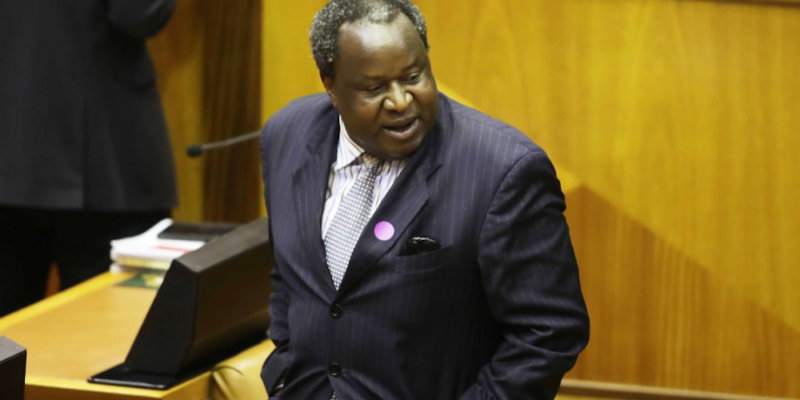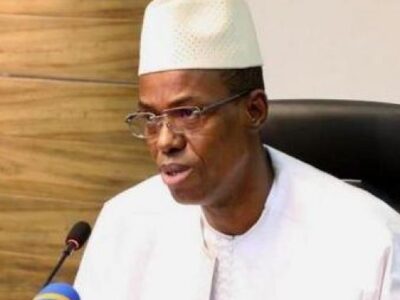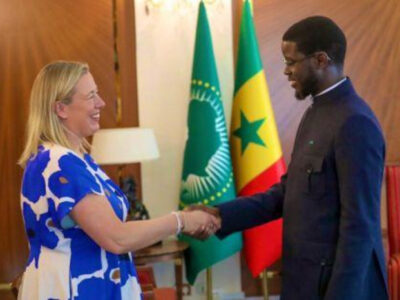I later came to understand that he appointed me as his Spad because he was determined to introduce economics into the thinking of labourmarket policy. First task for the labour minister and his various advisers was the urgent one of rewriting the labour relations legal framework. This was no small task, not least because it was one of the few policy fields in which the ANC government was negotiating with its allies, the union movement, who not only had clear ideas about the kind of labour relations framework that they wanted, but who also believed, with strong justification, that the ANC owed them.
I learnt a lot about Mboweni in the process of negotiating the Labour Relations Act. First, his resilience. We would negotiate all day, well into the evening. The principal venue was the old Carlton Hotel. We would discuss the day’s outcomes over a late dinner. Then, under the leadership of the indomitable Halton Cheadle, the Spads would spend the rest of the night redrafting the bill in accordance with our interpretation of what we had agreed the previous day. This continued over months.
Sheer energy
But more than the sheer energy that these 20-hour days required, Mboweni was blessed with an exceptionally unyielding attitude. He would negotiate while all others around him were wilting. He would give up his prenegotiation positions if and when persuaded that he was wrong, not one minute before. And if not persuaded, he would negotiate until his counterparts accepted his view, whether by dint of exhaustion or his considerable powers of persuasion.
This speaks to a second feature of Mboweni’s personality that these negotiations revealed: his deep respect for intellectual discourse. Mboweni was not an ordinary politician in this regard. He had little problem in accepting the arguments of his negotiating counterparts or in forging a compromise if convinced by the weight of his opponents’ position. It didn’t matter that his party or his government thought otherwise. He would take responsibility for persuading them to change their mandates and he invariably succeeded. “Saving face”, neither his own nor his opponents, was not in Mboweni’s lexicon.
This was not all that he accomplished in the labour ministry. He reworked the minutely detailed Basic Conditions of Employment Act, he saw to the passage of the Employment Equity Act, he set up the National Economic Development and Labour Council (Nedlac) and the Commission for Conciliation, Mediation and Arbitration (CCMA) and much else besides. When I think of his work output now it seems that his ministry achieved more than the entire cabinet does nowadays.
He could be damn difficult. He was moody. He could be arrogant. He competed, sometimes to a fault, with his fellow cabinet ministers, but mostly his competitive nature inspired him, and hopefully those with whom he competed, to greater heights. He could be thin-skinned, especially regarding the media, a shortcoming that was peculiarly at odds with his strong commitment to transparency and public engagement, which he took with him to the mausoleum that is the Reserve Bank.
Thin skin
He was allergic to any whiff of scandal on his watch. After he had appointed me to co-chair — with Moss Ngoasheng, Thabo Mbeki’s economic adviser — the Labour Market Commission, a particular member of the media who delighted in scratching Mboweni’s thin skin, learnt that Ngoasheng and I were going to be spending a few weeks at the International Labour Organisation (ILO) training centre in Turin to work with some ILO colleagues on drafting the commission’s report.
The journalist calculated the cost of first-class tickets to Turin for all 15 members of the commission; for two weeks stay at the most expensive hotel in Turin; for lavish expense allowances. The truth is that only Ngoasheng and I were going to a lousy northern Italian town in midwinter, we were going economy class, and we were staying in the ILO centre, which resembled a university residence rather than a luxury hotel. But this didn’t stop the fake story from appearing on the SABC news on Christmas eve headlined something like “Mboweni’s commission to spend millions on Italian junket”.
I happened to see this on the only working SABC channel in the tiny Western Cape village of Vermaaklikheid where I was spending a well-deserved break from Mboweni. I then spent the first five days of my holiday across the river, up a mountain where I could get phone reception, trying to persuade Mboweni that I had not wrecked his reputation and his career. We stayed at home! The good news is that I would put my head on a block that the only cent of public money that found its way into Mboweni’s pocket was his well-earned salary.
But undoubtedly my fondest and most revealing memory of Mboweni was when, at nursery school, my then five-year-old son, Jonah, sang Baa Baa White Sheep while the rest of the class sang Baa Baa Black Sheep’. “Tito teached me,” he told his bemused teacher, clearly intuiting that this was an authority that no mere nursery schoolteacher could question. Always the disrupter!
Install a statue of him in front of the Reserve Bank. Make it big, of slick black granite, with an avocado pear in one hand, and a fine red in the other. He deserves nothing less!
• Lewis, a former trade unionist, academic, policymaker, regulator and company board member, was a co-founder and director of Corruption Watch.










Comments